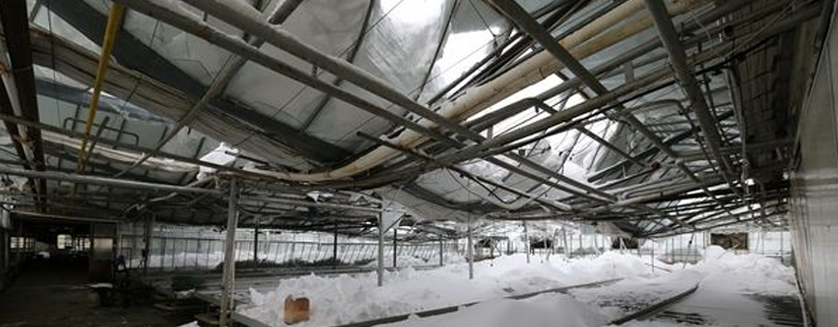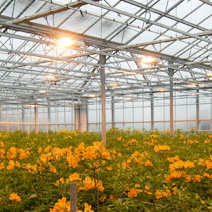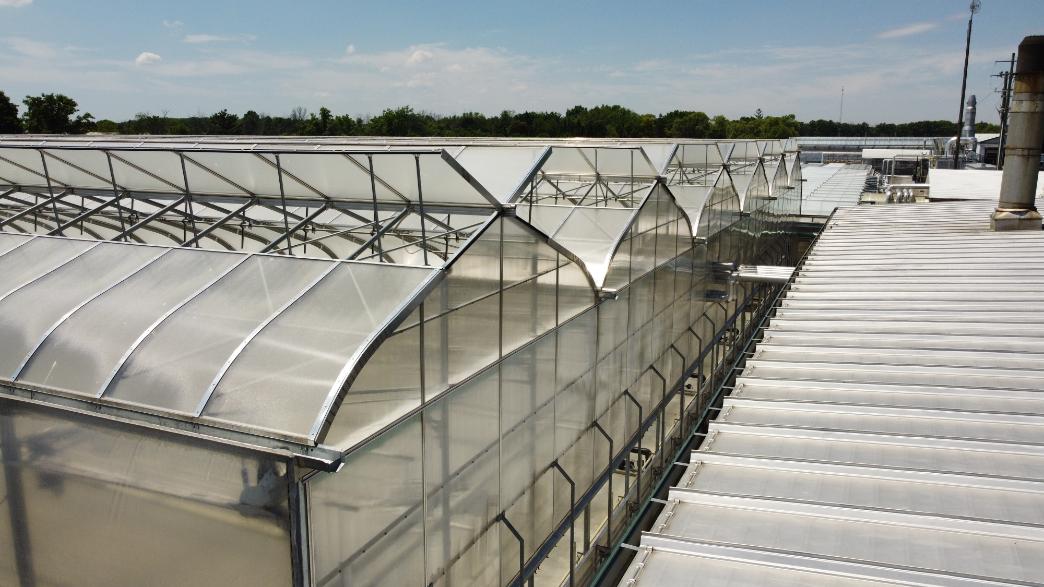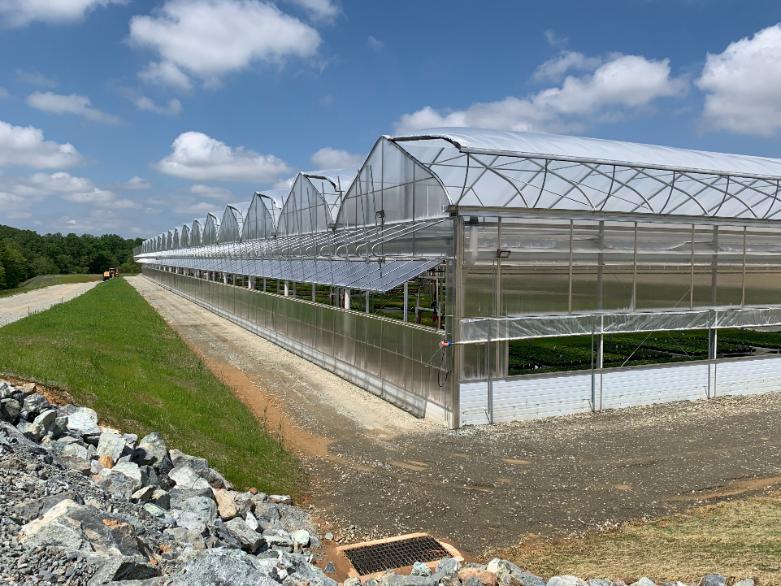10 Steps for Recovering From Disaster
When the early winter snow storm hit western New York State with more than a year’s worth of snow in 3 days, roofs of houses came down, cars were buried, people were stranded, and some greenhouses collapsed. These events are traumatic and heart breaking and it is easy to wonder how on earth you would get through such a disaster.
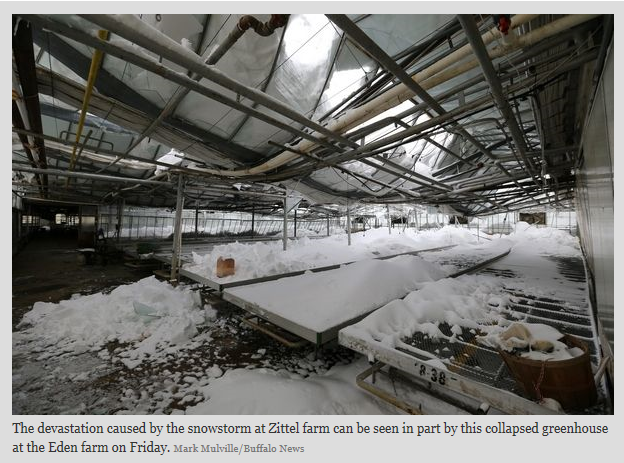
At different times and in various parts of the world greenhouse businesses have suffered from extreme snow loads, fires, hurricanes, floods, and earthquakes. Often the business owners and families have rebuilt and come out of it strong.
When all is lost, take heart, you can get through this. Here are 10 steps to help move your greenhouse business forward.
- Understand that it is okay to grieve.
- Greenhouse businesses are family businesses, and losing your business is personal, and emotional.
- “I’ve had growers break down in tears. It is emotionally draining for everyone, including me, because I really feel for these people who have had everything destroyed. “Greg Ackland the GGS representative in New York State has helped several growers recover from storm damage.
- Find something to be grateful for
- In times of crises most people find it helpful to cherish what they have. Through the recent damage growers repeatedly said “Thank god we didn’t lose any lives”.
- Be grateful for family, friends, and neighbors. The agricultural community is always quick to help out.
- Be conscious of unproductive worry.
- During times of stress, you may find yourself running “what if” scenarios in your head. Focusing on hypothetical future situations is unproductive worry, because there is no real problem yet to solve. When you find your thoughts drifting say to yourself: this is not a problem I can solve right now, then return your focus on immediate tasks, problems and solutions.
- Get help
- Your insurance agent will hopefully be a help in a time of crisis, and they need to be notified right away, before any cleanup is done. They are familiar with the steps that need to be taken when disaster strikes, and a good agent will provide you with assistance and assurance about what is covered and what is not.
- In the US the Small Business Administration may also be able to provide some financial help. Their Office of Disaster Assistance has a mission to provide low interest loans to repair or replace real estate, personal property, machinery & equipment, inventory and business assets that have been damaged or destroyed in a declared disaster.
- Friends, neighbors, suppliers, can all be called upon to lend a hand, help with cleanup details, as well as rebuilding.
- Take stock of the situation
- Making a list of what can be saved, and what needs to be repaired, or replaced can help clarify the situation.
- Identify potential suppliers to contact for each item that needs to be repaired or replaced.
- Make a daily work schedule plan
- Make a daily plan for what you will need to do and what your team will need to be doing. A lot of crisis anxiety is caused by interruption to your daily routine. Making a daily work plan for the first few weeks gives everyone specific goals to work towards, and everyone will take comfort in seeing progress made as these small tasks are accomplished.
- Identify Symptoms of Stress in you, your family, and your team
- It is common for stress to make it difficult to sleep, induce headaches, stomach problems, colds or flu-like symptoms. You may find it difficulty communicating your thoughts, or find people becoming easily disoriented or confused
- Being that many greenhouse businesses are family farms, be aware of how your stress will affect how your children cope. According to Fema’s coping with disaster page: Parents and adults can make disasters less traumatic for children by taking steps to manage their own feelings and plans for coping. One way to establish a sense of control and to build confidence in children before a disaster is to engage and involve them in preparing a family disaster plan. After a disaster, children can contribute to a family recovery plan.
- Stay on top of communication
- Once the worst is over, let your customers know what’s happening. Have a representative personally contact every customer who’s orders are directly affected. Update the home page of your company’s website, keep social media like facebook and twitter updated. Let your customers know if your ordering, shipping or inventory is affected, and if or when you expect to be open for business again. Share as much detail as you can about your recovery plan. Showing your customers how you are dealing with a problem will inspire trust, and assure them that you will be back in business.
- This type of communication will work for assuring your employees as well. Regular updates of progress throughout the company will build moral and keep everyone focused on the tasks at hand.
- Make and execute your recovery plan
- Call your suppliers, get quotes for repairs and replacement of greenhouse structure, equipment, heating systems, etc. Consider if there is anything different that should be done that will make your business more efficient, or better equipped in case of a future disaster.
- Reassess your Emergency Plan ( or create one if you don’t have it already )
- Having a plan in place “just in case” is one of the best insurance policies you can have, because a plan provides security for your mental and emotional state. It also helps highlight where additional insurance may be needed, like business interruption insurance.
- Emergency Plans should cover how to deal with an emergency: tasks required, like calling insurance, shutting down the boiler, moving chemicals, calling customers, and who is in charge of each task. It should also include a business continuity plan that answers critical questions like, how will we fill existing orders.
- Reassessing your emergency plans shortly after a disaster is important because critical issues are fresh in your mind. We can never be totally prepared for everything, but improving plans after a crisis, will make you better prepared.
It is a challange to stay positive in a time of crisis, but Greg Ackland noticed "the people I have seen who approached the damage in a positive manner have had a much more positive staff, and progress towards rebuilding goes quicker. We are fortunate that no one lost any GGS greenhouses in this storm."
